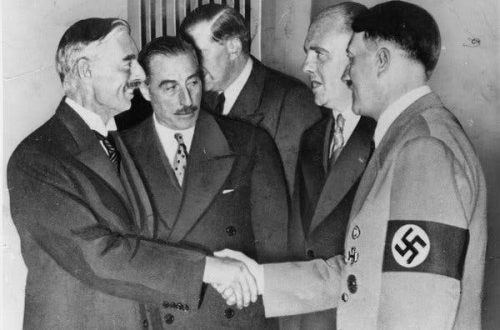Hitchens on Obama’s stance on the Armenian genocide and the potential for participating in a historic lie:
President Obama comes to this issue with an unusually clear and unambivalent record. In 2006, for example, the U.S. ambassador to Armenia, John Evans, was recalled for employing the word genocide. Then-Sen. Obama wrote a letter of complaint to then-Secretary of State Condoleezza Rice, deploring the State Department’s cowardice and roundly stating that the occurrence of the Armenian genocide in 1915 “is not an allegation, a personal opinion, or a point of view, but rather a widely documented fact supported by an overwhelming body of historical evidence.” On the campaign trail last year, he amplified this position, saying that “America deserves a leader who speaks truthfully about the Armenian genocide and responds forcefully to all genocides. I intend to be that president.”
[…]
The usual routine has been to insinuate that if Congress votes to assert the historic truth, then Turkey will inconvenience the NATO alliance by making trouble on the Iraqi border, denying the use of bases to the U.S. Air Force, or in other unspecified ways. This same kind of unchecked arrogance was on view at the NATO summit last weekend, where the Ankara government had the nerve to try to hold up the appointment of a serious Danish politician, Anders Rasmussen, as the next secretary-general of the alliance, on the grounds that as Denmark’s prime minister he had refused to censor Danish newspapers to Muslim satisfaction! It is now being hinted that if either President Obama or the Congress goes ahead with the endorsement of the genocide resolution, Turkey will prove uncooperative on a range of issues, including the normalization of the frontier between Turkey and Armenia and the transit of oil and gas pipelines across the Caucasus.When the question is phrased in this thuggish way, it can be slyly suggested that Armenia’s own best interests are served by joining in the agreement to muddy and distort its own history. Yet how could any state, or any people, agree to abolish their pride and dignity in this way? And the question is not only for Armenians, who are economically hard-pressed by the Turkish closure of the common border. It is for the Turks, whose bravest cultural spokesmen and writers take genuine risks to break the taboo on discussion of the Armenian question. And it is also for Americans, who, having elected a supposedly brave new president, are being told that he—and our Congress too—must agree to collude in a gigantic historical lie.
Turkey is still refusing to develop diplomatic ties with Armenia, in part because of Armenian insistence that a genocide occurred. Obama has avoided offending Turkish sensibilities on his recent visit. Some young Turks hope he will continue to do so.


